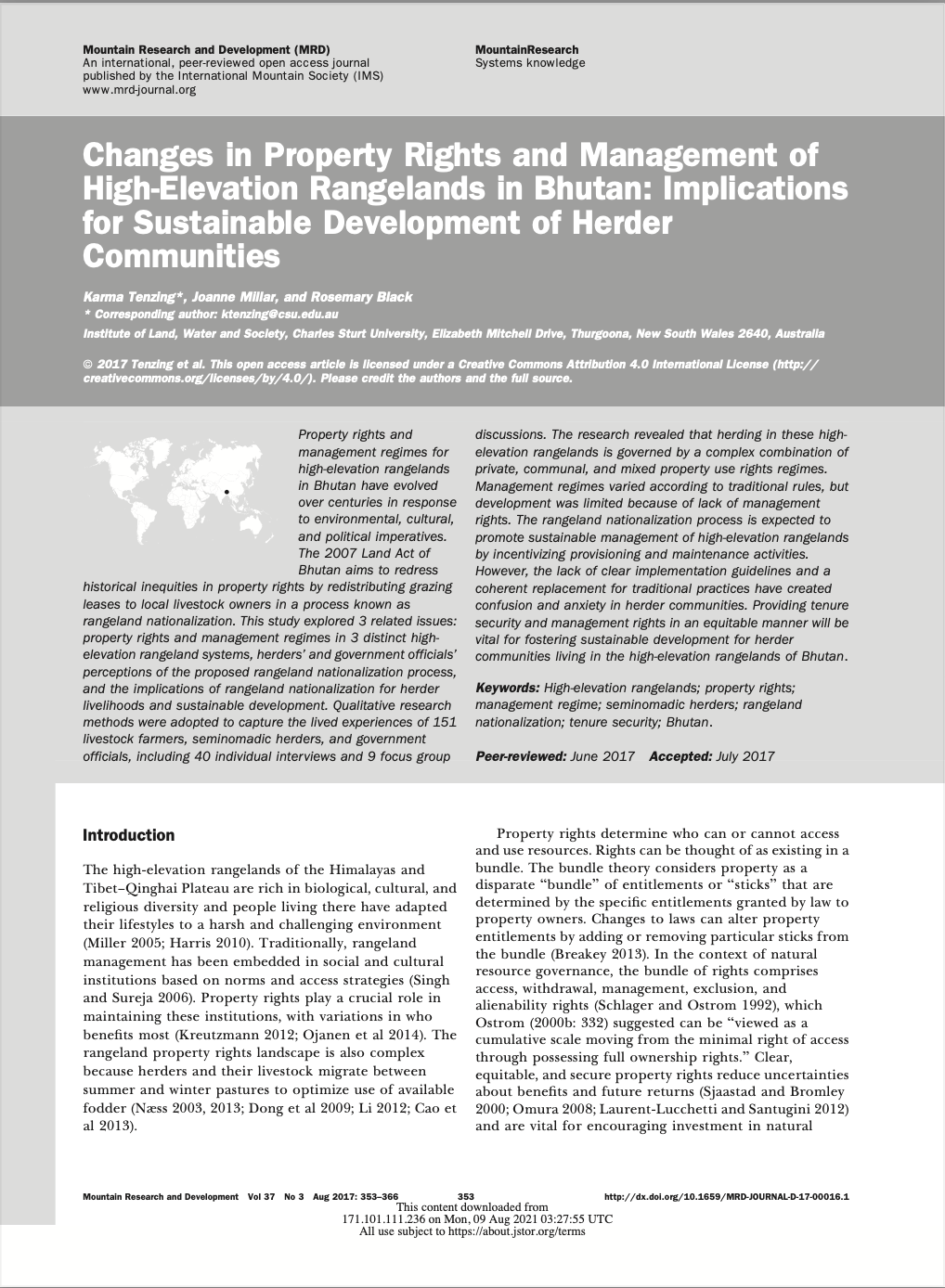Joint Village Land Use Planning in Tanzania: A process to enhance the securing of rangelands and resolving land use conflicts
In Tanzania, ongoing land insecurity is a structural cause of food insecurity particularly for
pastoralists, agro-pastoralists and small-scale crop farmers leading to land use conflicts,
compromised access to resources including grazing and water and rangeland degradation.
Land tenure security and management can be improved through village land use planning (VLUP)
and land certification – namely the issuing of certificates of customary rights of occupancy
(CCROs). In situations where villages share resources such as grazing areas and water, joint village
Governance of natural resources
Important knowledge gaps among pastoralists on causes and treatment of udder health problems in livestock in southern Ethiopia: results of qualitative investigation
Background
Transcending landscapes: Working across scales and levels in pastoralist rangeland governance
Landscape approaches can be subjected to mistakenly targeting a single “best” level of governance, and paying too little attention to the role that cross-scale and cross-level interactions play in governance. In rangeland settings, resources, patterns of use of those resources, and the institutions for managing the resources exist at multiple levels and scales.
The role of mobile technologies in promoting sustainable delivery of livestock insurance in the East African Drylands: Toward sustainable Index-Based Livestock Insurance (IBLI) for pastoralists
Nouveau pastoralisme marginal : Conflits, insécurité et développement dans la Corne de l’Afrique et le Sahel
Changes in Property Rights and Management of High-Elevation Rangelands in Bhutan: Implications for Sustainable Development of Herder Communities
Property rights and management regimes for high-elevation rangelands in Bhutan have evolved over centuries in response to environmental, cultural, and political imperatives. The 2007 Land Act of Bhutan aims to redress historical inequities in property rights by redistributing grazing leases to local livestock owners in a process known as rangeland nationalization.
Socioeconomic impacts of innovative dairy supply chain practices - The case of the Laiterie du Berger in the Senegalese Sahel
This study analyzes the Laiterie Du Berger (LDB)’s milk supply chain and its contribution to strengthening the food security and socioeconomic resources of Senegalese Sahelian pastoral households. Porter’s value chain model is used to characterize the innovations introduced by the LDB dairy in its milk inbound logistics and supplier relationships. A socioeconomic food security index and qualitative data are used to assess the dairy’s supply chain’s contribution to strengthen smallholder households’ livelihoods.
Gender and the commons: Pastoral women’s land rights and village land use planning in Tanzania: Experiences from the sustainable rangeland management project
In pastoral societies women face many challenges. Some describe these as a ‘double burden’ –
that is, as pastoralists and as women. However, pastoral women may obtain a significant degree
of protection from customary law even if customary institutions are male-dominated. In periods
of change (economic, social, political), this protection may be lost, and without protection from
statutory laws, women are in danger of “falling between two stools” (Adoko and Levine 2009). A


